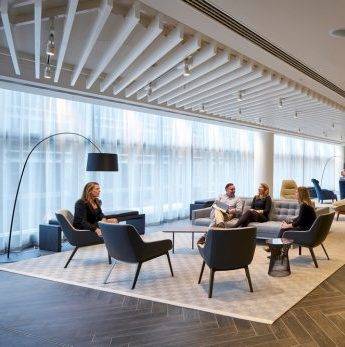June 27, 2018
How limiting non-work related web use affects security and productivity
 Spiceworks has announced the results of a new survey examining the use of web filtering in the workplace and the implications of restricting certain online behaviours. The results indicate among organisations that don’t restrict non-work related web use, most employees (58 percent) spend at least four hours per week, the equivalent of 26 workdays per year, on websites unrelated to their job. In other words, based on the median U.S. salary of $45,812, these organisations are paying full-time employees approximately $4,500 per year to spend 10 percent of their time consuming non-work-related web content.
Spiceworks has announced the results of a new survey examining the use of web filtering in the workplace and the implications of restricting certain online behaviours. The results indicate among organisations that don’t restrict non-work related web use, most employees (58 percent) spend at least four hours per week, the equivalent of 26 workdays per year, on websites unrelated to their job. In other words, based on the median U.S. salary of $45,812, these organisations are paying full-time employees approximately $4,500 per year to spend 10 percent of their time consuming non-work-related web content.







 The digital era, ageing populations, skills shortages, and unpredictable political and economic contexts are persuading multinationals to focus more on mobile talent, new ways of working and assessing the cost of expatriate packages for international employees that are critical to the future of work. This is according to Mercer’s 24th annual Cost of Living Survey which reveals that factors such as instability of housing markets and fluctuating inflation, currencies and prices for goods and services, are impacting the cost of doing business in various cities around the world. UK cities have significantly risen in the ranking this year.
The digital era, ageing populations, skills shortages, and unpredictable political and economic contexts are persuading multinationals to focus more on mobile talent, new ways of working and assessing the cost of expatriate packages for international employees that are critical to the future of work. This is according to Mercer’s 24th annual Cost of Living Survey which reveals that factors such as instability of housing markets and fluctuating inflation, currencies and prices for goods and services, are impacting the cost of doing business in various cities around the world. UK cities have significantly risen in the ranking this year. 














 A major research study “
A major research study “
 Business Secretary Greg Clark proposed new laws in Parliament yesterday (June 11th) that new large firms will have to justify their chief executives’ salaries and reveal the gap to their average UK worker. It means that for the first time, UK listed companies with more than 250 UK employees will have to disclose and explain this difference – known as ‘pay ratios’ – every year. However, according to data published today by the Chartered Management Institute (CMI) and
Business Secretary Greg Clark proposed new laws in Parliament yesterday (June 11th) that new large firms will have to justify their chief executives’ salaries and reveal the gap to their average UK worker. It means that for the first time, UK listed companies with more than 250 UK employees will have to disclose and explain this difference – known as ‘pay ratios’ – every year. However, according to data published today by the Chartered Management Institute (CMI) and 







June 20, 2018
Successful EFMC event in Sofia sets its sights next on Dublin
by Beatriz Jiménez • Comment, Events, Facilities management
(more…)